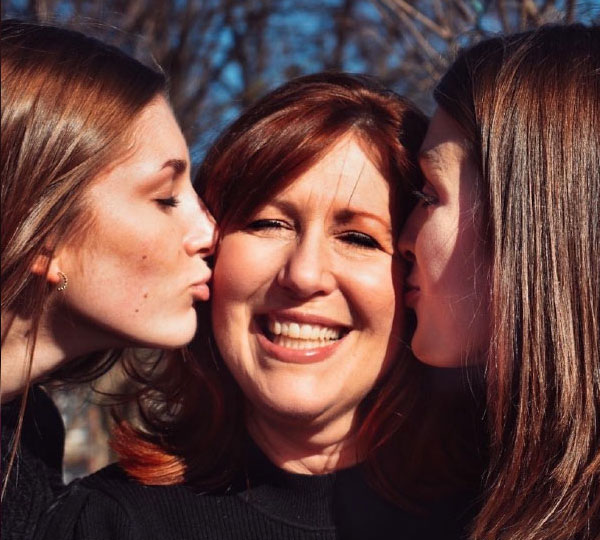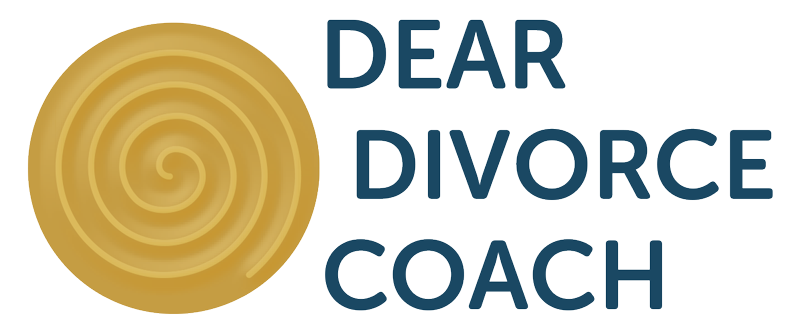Dear Divorce Coach:
My husband and I are divorced, and we share custody of our two children, 10 and 13. I think the children have a right to know about my husband’s adultery. I am suffering a great deal because of his actions and they need to know who their dad is. I also don’t want them interacting with his affair partner who is now living with him. How should I tell them about their dad and convince them not to talk to the other woman who they seem to like a lot?
– Disappointed Spouse

Dear Disappointed Spouse,
You may be tempted to share the story of your divorce with your kids. This is especially true if you believe your co-parent is responsible for the divorce. Here’s why it’s not a good idea:
- Your child deserves to be a child and not “parentified” by you: It’s your job, as an adult, to take care of yourself and to reach out to others, including professionals, who may help you do so. If you burden your child with your difficulties, even if well-intentioned, they may have trouble later with it themselves. They may be confused about their relationship with their other parent, based on what they see you doing and saying. This isn’t good for them. In fact, the data on divorce shows conflict between parents hurts kids. This means even if you are correct, they may suffer because of it. As hard as this time is for you, it doesn’t help them to process it in the same way you do.
- In addition, as your child grows up, if you have made them your confidant, they may not have a good basis for their own emotional regulation. This means as they encounter the inevitable challenges of adolescence and young adulthood, they may resort to unhealthy coping mechanisms and have a higher rate of depression, anxiety and eating disorders. Teaching your child how to manage difficulty is a critical skill as they grow toward adulthood. You don’t have to perfect to do this. They can see that you are sad or angry or are sometimes struggling too. Demonstrating your ability to access appropriate resources to cope, and not make your problems their problems, teaches them they can do so too.
- If you do not teach your child about taking responsibility for their actions by showing them that you take responsibility for yourself, they may become the adolescent who blames others for everything that goes wrong too. Instead, if your child asks about why you divorced, even if your co-parent did something you perceive as unforgivable, you can reassure them it is between the adults, you both love them very much and that’s what matters. Otherwise, they suffer in a way you may not intend but failing to examine their role in any situation as they grow up.
- Perhaps, when they are adults, and want to know more directly what occurred as they navigate their own relationships, it may be appropriate to share what you experienced. You can add context about how you took care of yourself and reached out to others for help too. This kind of role modeling lifts you up to your child and teaches them, most importantly, how to avoid becoming a victim to any circumstance. It is not universally true, but almost always true, that no one action leads to separation and divorce. Many moving parts contribute to partners moving away from rather than towards each other. If you can begin to figure out what wasn’t working for you in the marriage, this will also help you do better for yourself and your children in the future.
- One of the hardest parts of divorce, as we co-parent, is to realize that we cannot often control what occurs in the other parent’s home. Although it’s a lovely idea to be “on the same page” with a co-parent there are many reasons this may not happen, at least in the beginning stages of divorce. What we can do, however, is recognize what we can control and what we can’t. This means paying less attention to what your co-parent is doing on their time with the kids, including introductions to new friends and partners.
- This isn’t easy, and you may disagree strongly about what’s best for the kids, but it is almost entirely a waste of your time and energy to do so. Even Agreements restricting introductions to new partners aren’t easily enforceable and, ultimately, each of you will live your own life too. Fighting about what the other parent is doing, unless it is abusive by an objective standard, makes it unlikely you can create a more cooperative shift in your co-parenting which will help your kids.
In sum, the more work you can do to take care of yourself, work on resolving the hurt, anger and despair you have from divorce, will help your children too. Allow your focus to be looking forward, and not back, so that you and your children can remember what’s good about your life together and not the conflict that seems intractable. Your children will admire your ability to be present for their lives and not unable to move forward in yours too.
I strongly recommend you consider working with a coach or therapist so that you can move forward from your story of divorce into empowerment in your life. A therapist is a great idea if you may have more than situational anxiety and depression and to address this first. A coach can help you with a specific mindset for moving forward. Your children may also need a neutral space to process their emotions and a good child/teen therapist or coach can help them do just that too!
